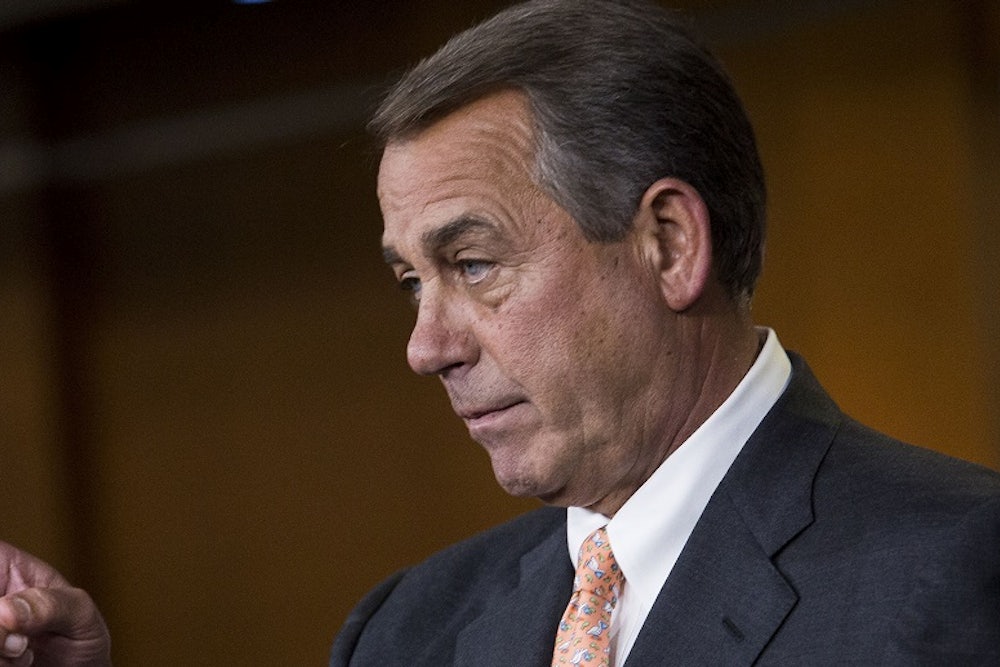Most Americans believe that income inequality is a problem. A Gallup poll in January found that 67 percent of Americans are dissatisfied with the current income and wealth distribution. Nonetheless, conservatives often insist that the real problem is economic mobility. But in San Antonio on Monday, liberals earned an unlikely ally in their fight to reduce income inequality: John Boehner.
“We do have an issue of income inequality in America,” the House speaker told Texas Tribune editor-in-chief Evan Smith in a one-on-one interview. “The president's policies are making that problem worse… The top third of America are doing pretty good. The bottom two-thirds are really being squeezed. And I really do believe the president's policies are driving this in the wrong direction.”
Those comments may seem rote for a Republican, but they are in fact pretty unusual. For instance, in the Republican response to the State of the Union, House Republican Conference Chair Cathy McMorris Rodgers said, “The President talks a lot about income inequality. But the real gap we face today is one of opportunity inequality.” Republicans like Paul Ryan and Eric Cantor have repeatedly tried to pivot from income inequality to mobility in recent months.
If Boehner’s Republican colleagues come around to his beliefs, that would represent major shift in the party's policy agenda. And once Democrats and Republicans agree that rising income inequality is a problem, then they can debate what to do about it. In Texas, Boehner argued against raising the minimum wage, but was short on specific policy prescriptions for closing the gap between the rich and poor. So I visited the House GOP website for more information.
There wasn’t much. The site didn't have a section on income inequality, but under “Middle Class Squeeze” I found a page titled “Increasing Wages and Take Home Pay,” which contained only two paragraphs about the “job-killing” effect of Obamacare’s employer mandate. Under the health-care reform law, employers with more than 50 workers must offer insurance to any employees who work more than 30 hours a week, or pay a penalty of $2,000 per employee. Republicans want to repeal the mandate because employers may cut their workers’ hours to avoid the mandate. It’s a legitimate fear, but the mandate was delayed until 2015. In a recent report, the Congressional Budget Office found no signs that the employer mandate was leading to a cut in worker hours.
Repealing the employer mandate doesn’t constitute a plan to reduce income inequality. And that’s House Republicans' only proposal, far as I could find, to increase wages and take-home pay. On different pages for jobs and growth, they argue for deregulating the energy industry and a few job-training bills. As I’ve written many times, that doesn’t constitute a jobs plan.
When Republicans believed income inequality wasn’t a problem, it made sense that they didn't have a plan to fix it. But with a Republican leader like Boehner begrudgingly admitting that it is a problem, the GOP's next challenge—one that Democrats face as well—is to develop solutions for it. Two measly paragraphs won't do.
